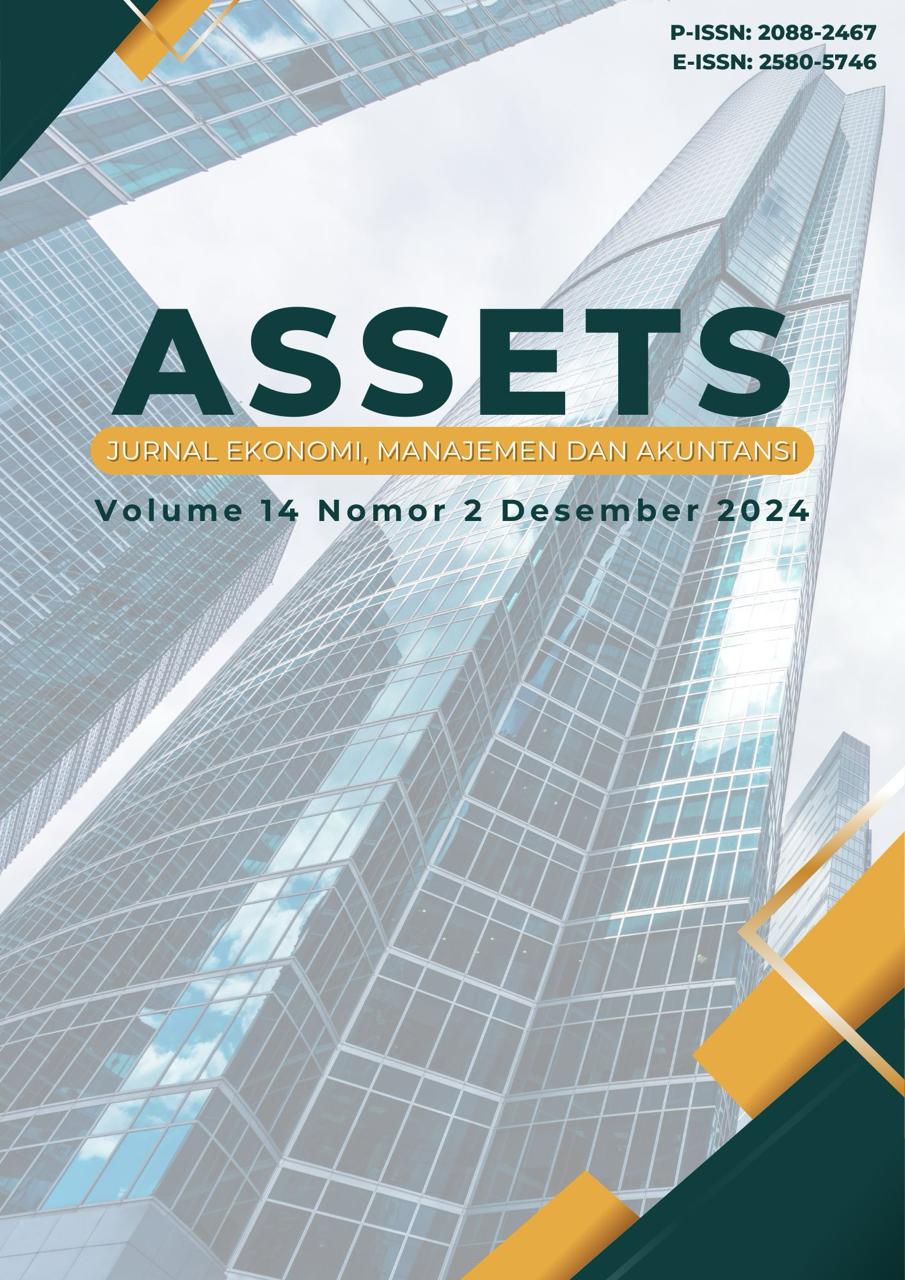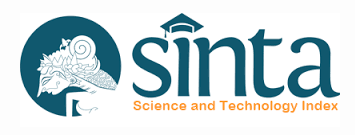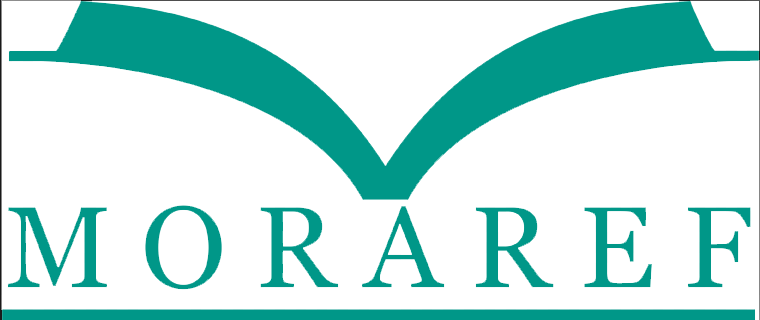EXPLORING YOUTH INTENTION TOWARD SELF-EMPLOYMENT IN INDONESIA: EVIDENCE FROM SUSENAS MICRODATA
Abstrak
This study examines the determinants of youth intentions toward self-employment using data from the 2022 Survei Sosial Ekonomi Nasional (SUSENAS). The analysis draws from a robust sample of more than 200.000 individuals aged 16 to 30, as defined by Indonesia’s Law No. 40/2009 on Youth. Logistic regression analysis was employed to investigate the influence of various socio-economic factors on self-employment intentions. The results reveal that demographic characteristics such as gender, marital status, and household size significantly affect entrepreneurial aspirations, with rural youth showing stronger effects than their urban counterparts. Financial factors, particularly saving behavior and access to credit, also play a pivotal role in promoting self-employment intentions. Interestingly, while education and internet access exhibit mixed effects, geographic differences highlight the varying challenges faced by rural and urban youth. These findings underscore the complex interplay between socio-economic factors and entrepreneurial intentions, offering key insights for policymakers aiming to foster youth entrepreneurship across Indonesia's diverse regions.
Referensi
Andriamahery, A. and Qamruzzaman, M., 2022. Do access to finance, technical know-how, and financial literacy offer women empowerment through women’s entrepreneurial development?. Frontiers in psychology, 12, p.776844.
BPS – Statistics Indonesia., 2024. Tingkat Pengangguran Terbuka Berdasarkan Kelompok Umur, 2021-2023. Retrieved from https://www.bps.go.id/id/statistics-table/2/MTE4MCMy/tingkat-pengangguran-terbuka-berdasarkan-kelompok-umur.html.
Brixiová, Z., Kangoye, T. and Yogo, T.U., 2020. Access to finance among small and medium-sized enterprises and job creation in Africa. Structural Change and Economic Dynamics, 55, pp.177-189.
Bullough, A., Guelich, U., Manolova, T.S. and Schjoedt, L., 2022. Women’s entrepreneurship and culture: gender role expectations and identities, societal culture, and the entrepreneurial environment. Small Business Economics, 58(2), pp.985-996.
Cardella, G.M., Hernández-Sánchez, B.R. and Sanchez Garcia, J.C., 2020. Entrepreneurship and family role: a systematic review of a growing research. Frontiers in psychology, 10, p.2939.
Chang, S. and Zhang, X., 2015. Mating competition and entrepreneurship. Journal of Economic Behavior & Organization, 116, pp.292-309.
Chudner, I., Shnider, A., Gluzman, O., Keidar, H. and Haimi, M., 2024, September. Becoming Self Employed: Israeli Family Physicians’ Push and Pull Factors. In Healthcare (Vol. 12, No. 17, p. 1749). MDPI.
Danson, M., Galloway, L. and Sherif, M., 2021. From unemployment to self-employment: Can enterprise policy intensify the risks of poverty?. Critical Perspectives on Accounting, 75, p.102164.
Faloye, D.O. and Olatunji, O.D., 2018. Entrepreneurship education and self-employment intentions among fresh graduates in Nigeria. Journal of Economics and Sustainable Development, 9(12), pp.146-158.
Gonalons-Pons, P. and Gangl, M., 2021. Marriage and masculinity: Male-breadwinner culture, unemployment, and separation risk in 29 countries. American sociological review, 86(3), pp.465-502.
Gupta, A., Batra, S. and Gupta, V.K., 2022. Gender, culture, and implicit theories about entrepreneurs: a cross-national investigation. Small Business Economics, 58(2), pp.1073-1089.
Grigorescu, A., Pîrciog, S. and Lincaru, C., 2020. Self-employment and unemployment relationship in Romania–Insights by age, education and gender. Economic research-Ekonomska istraživanja, 33(1), pp.2462-2487.
Jumpah, E.T., Ampadu-Ameyaw, R. and Owusu-Arthur, J., 2020. Youth employment in Ghana: Economic and social development policies perspective. World Journal of Entrepreneurship, Management and Sustainable Development, 16(4), pp.413-427.
Khamis, S.M., Yusof, M. and Saeed, M., 2021. Youth self-employment readiness: a literature survey, propositions and conceptual framework. An International Journal of Management and Technology, 11(1), pp.46-53.
Masenya, T.M., 2021. Technopreneurship development: digital strategy for youth self-employment in the digital economy. In Handbook of Research on Management and Strategies for Digital Enterprise Transformation (pp. 196-218). IGI Global.
Mayer, H. and Motoyama, Y., 2020. Entrepreneurship in small and medium-sized towns. Entrepreneurship & Regional Development, 32(7-8), pp.467-472.
Melak, D. and Derbe, T., 2022. Analysis of determinants of youth self-employment career choices. Journal of Small Business and Enterprise Development, 29(6), pp.886-901.
Mohd Noor, N.H. and Malek, E.N., 2021. An application of theory of planned behavior in determining student entrepreneurship intention. Jurnal Intelek, 16(1), pp.207-214.
Molina, J.A., 2020. Family and entrepreneurship: New empirical and theoretical results. Journal of Family and Economic Issues, 41(1), pp.1-3.
Morrar, R., Amara, M. and Syed Zwick, H., 2022. The determinants of self-employment entry of Palestinian youth. Journal of Entrepreneurship in Emerging Economies, 14(1), pp.23-44.
Oppong, G.Y.S., Singh, S. and Kujur, F., 2020. Potential of digital technologies in academic entrepreneurship–a study. International Journal of Entrepreneurial Behavior & Research, 26(7), pp.1449-1476.
Pantea, S., 2022. Self-employment in the EU: quality work, precarious work or both?. Small Business Economics, 58(1), pp.403-418.
Pyykkönen, M., Sokka, S. and Niiniaho, A.K., 2023. Artrepreneurs and the autonomy paradox. Cultural Trends, 32(5), pp.474-489.
Rani, U. and Furrer, M., 2021. Digital labour platforms and new forms of flexible work in developing countries: Algorithmic management of work and workers. Competition & Change, 25(2), pp.212-236.
Remeikienė, R., Žufan, J., Gasparėnienė, L. and Ginevičius, R., 2020. youth unemployment and selF-employment: trends and perspeCtives. E&M Economics and Management. Praha: Technical University of Liberec, 2020, vol. 23, iss. 3.
Romero, I. and Martínez-Román, J.A., 2024. Self-employment, innovation, and digital transformation: a review and research agenda. Research Handbook on Self-Employment and Public Policy, pp.378-394.
Rossier, J. and Ouedraogo, A., 2024. Work volition, decent work, and work fulfilment, in the formal and informal economy in Burkina Faso. In Decent Work, Inclusion and Sustainability (pp. 129-145). Routledge.
Sahut, J.M., Iandoli, L. and Teulon, F., 2021. The age of digital entrepreneurship. Small Business Economics, 56(3), pp.1159-1169.
Sherman, J., 2017. “Stress that I don't need”: Gender expectations and relationship struggles among the poor. Journal of Marriage and Family, 79(3), pp.657-674.
Sumberg, J., Fox, L., Flynn, J., Mader, P. and Oosterom, M., 2021. Africa’s “youth employment” crisis is actually a “missing jobs” crisis. Development Policy Review, 39(4), pp.621-643.
Wach, K. and Wojciechowski, L., 2016. Entrepreneurial intentions of students in Poland in the view of Ajzen's theory of planned behaviour. Entrepreneurial Business and Economics Review, 4(1), pp.83-94.
Xu, F., Kellermanns, F.W., Jin, L. and Xi, J., 2020. Family support as social exchange in entrepreneurship: Its moderating impact on entrepreneurial stressors-well-being relationships. Journal of Business Research, 120, pp.59-73.
Yerrabati, S., 2022. Self-employment and economic growth in developing countries: is more self-employment better?. Journal of Economic Studies, 49(2), pp.315-329.
Youssef, A.B., Boubaker, S., Dedaj, B. and Carabregu-Vokshi, M., 2021. Digitalization of the economy and entrepreneurship intention. Technological Forecasting and Social Change, 164, p.120043.
Zhao, D., Jiang, J. and Yin, Z., 2020. Can entrepreneurship bring happiness? Evidence from China. Economic Modelling, 91, pp.679-686.
Zhuk, O., 2023. Crowdfunding as an Innovative Financing tool for Entrepreneurship in Creative Economy. Innovative Management Of Business Integration And Education In Transnational Economic Systems, p.288.
Zu, L., 2020. Fostering social innovation and youth entrepreneurship for the achievement of the UN 2030 agenda: the Chinese way. The Future of the UN Sustainable Development Goals: Business Perspectives for Global Development in 2030, pp.341-365.
##submission.copyrightStatement##
##submission.license.cc.by-nc-sa4.footer##









